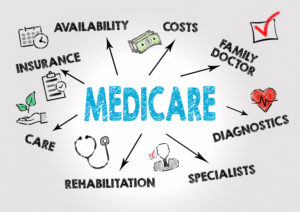
The actual human heart looks nothing like the cartoonish renditions that have saturated countless media for hundreds of years, particularly during the month of February. The first known publication of the familiar icon with two upper lobes and a V-shaped point dates back to the 14th century.
Indeed, the connection between love and the heart is so embedded in our consciousness, the two are nearly one and the same. Dating back to the ancient Greeks, the heart has been immutably linked to our strongest emotions. The ancient Romans believed that there was a vein running from the fourth finger of the left hand – the “ring” finger – directly to the heart.
Love has so many forms, it almost defies definition. But kindness is certainly an attribute of love of any type. The amalgamation of the two is even its own word: “loving-kindness.” Another coincidence is that February is American Heart Month, and February 17 is National Kindness Day.
While the heart has taken on epic symbolism, it is literally the physical center of our bodies. Without heart health, we would not survive.
A Vulnerable Heart
Heart disease is the number one killer of women (one in five) and a leading cause of death for men and most ethnic groups in the U.S. The risk factors for heart disease at any age are well-known: high blood pressure, high cholesterol, diabetes, sedentary lifestyle, cigarette smoking, unhealthy diet, alcohol abuse, genetics, and more.
Age, however, is the most dominant risk factor. Over 80 percent of deaths from coronary heart disease are among people aged 65 and older.
The Aging Heart
There are several factors that contribute to the decline of an older heart. Some of them include:
- Thickening and stiffening. Heart chambers and valves often grow thicker and stiffer with age, weakening blood pumping to and from the heart.
- Congestive heart failure. To compensate for diminished blood pumping, the aging heart may stretch to hold more blood, causing the kidneys to retain more water, salt and other fluids.
- Hardening of the arteries. In a condition known as arteriosclerosis, large arteries harden as we age, inhibiting oxygen-rich blood flow to the heart and other organs.
- Increase in size. Older people are at increased risk for cardiomegaly, an increase in the size and sometimes the shape of the heart.
- Slower heart rate. The system responsible for the heart’s ability to maintain a normal pace is susceptible to fibrosis and fat accumulation in elderly “tickers,” resulting in slowed heart rate.
- Atrial fibrillation. Common among the elderly, arrhythmia (abnormal heart rhythms) can lead to serious cardiovascular events.
- Heart cell changes. Lastly, molecular adaptations in the cardiovascular system can contribute to heart disease as we age.
What Can We Do?
Get regular health checks
Regular visits with a trusted medical professional are critical as we age. A doctor will check blood pressure, run screens and blood tests, prescribe, adjust and monitor medications, make dietary recommendations. They’ll also assess mental and emotional health. If you are an adult child or loved one of a senior, your attendance at medical visits might be helpful.
Know the warning signs
Signs of imminent heart attack can include chest pain, shortness of breath, nausea, pain in the upper body, arms, back, neck, jaw or stomach, breaking out in a cold sweat, and dizziness. Get help immediately! Many fatal heart attacks can be avoided with swift action.
Eat healthy foods, maintain healthy weight
Heart healthy food choices include nuts and seeds, omega-3 fats from seafood, fruits and vegetables, whole grains, and polyunsaturated fats. Foods high in sodium, processed meats, saturated fats, and sugary beverages have been linked to cardiometabolic diseases such as heart disease, type 2 diabetes and stroke. Obesity is a significant risk factor for heart disease, so maintaining a healthy weight is paramount.
Stay active
Even as we age and our bodies decline in strength, mobility and cardiovascular function, light, regular exercise is still very important to heart health. Assuming there are no chronic or other conditions that would be worsened by physical activity, the CDC recommends that seniors “move more and sit less.”
Don’t smoke, reduce alcohol consumption
Smoking is terrible for your heart. Though it may be a longtime habit among older people, health experts recommend quitting smoking entirely. Too much alcohol is also hard on the heart; no more than one drink per day is advised for seniors.
Respect your limits
Older age can impose unique stresses: loneliness, isolation, diminished mobility, depression, age-related illness, worry about the future. In addition, for those living on their own, the burden of caring for oneself, house and yard can be overwhelming. There is no shame in seeking help, whether from family, neighbors or by moving to a senior community.
Become educated
Credible information about heart health is abundant, and research and advances are ongoing. It is important for both seniors and their family members to know the latest in heart health. Some excellent sources are the American Heart Association, the Mayo Clinic, the Cleveland Clinic’s patient education, and the National Institutes of Health.
Give and receive kindness
Recent times have clearly shown us the value of human kindness. Random acts of kindness are everywhere – from friends, family, neighbors, and total strangers. Kindness literally does a heart good, both extending it to others and accepting it in return.
Heart Health and Kindness at Barclay Friends
Kindness is built into our core Quaker principles. Each individual is tasked, with God as their example, to build a kinder world. When the coronavirus prevented family and friends from visiting with residents inside our building, we felt the heartbreak, too.
We responded by encouraging window and front door visits. When it became too cold to be outside, we set up special rooms inside, separating masked visitors from masked residents with plexiglass dividers. We also helped connect residents with their loved ones through Skype and FaceTime. You’ll find more acts of kindness on Barclay Friends’ Facebook page, including one family’s recent adventure building snowmen (and women) for our residents to enjoy!
Taking our residents’ well-being literally to heart, all of our menus offer and are marked with “Heart Healthy” food items. In addition, our fitness programs focus on the benefits of good cardiovascular health. This month, (as we’ve done in previous years), many of us wore red in recognition of the prevalence of heart disease in America.
Take Heart!
Cotter and Preston are open and accepting applications. Enjoy a healthy new lifestyle with kind and friendly people.
